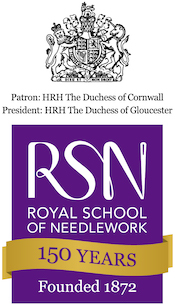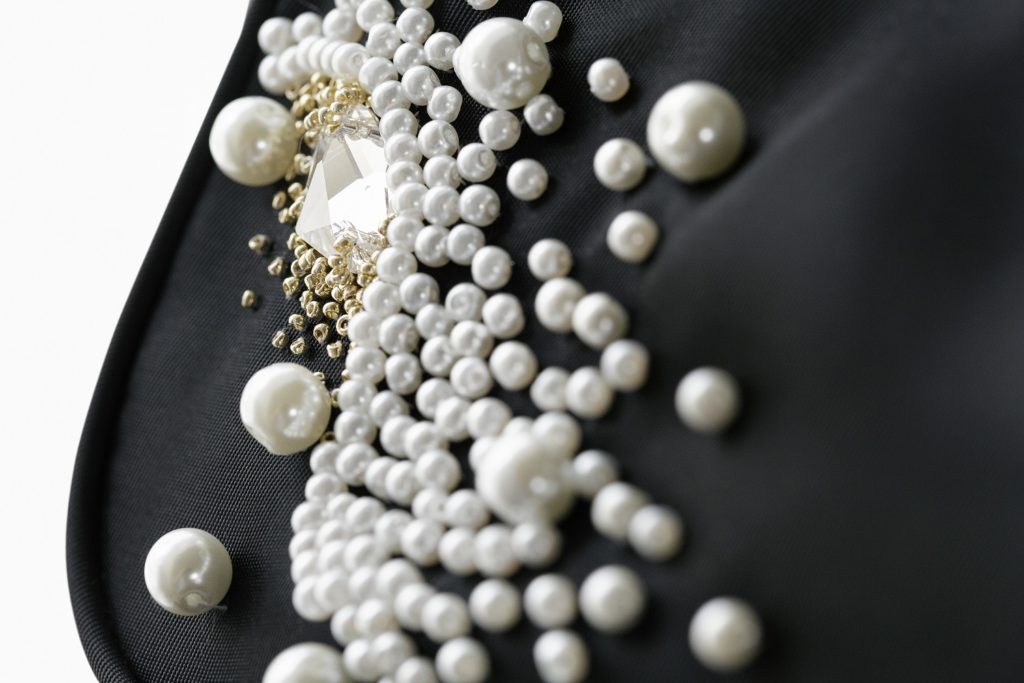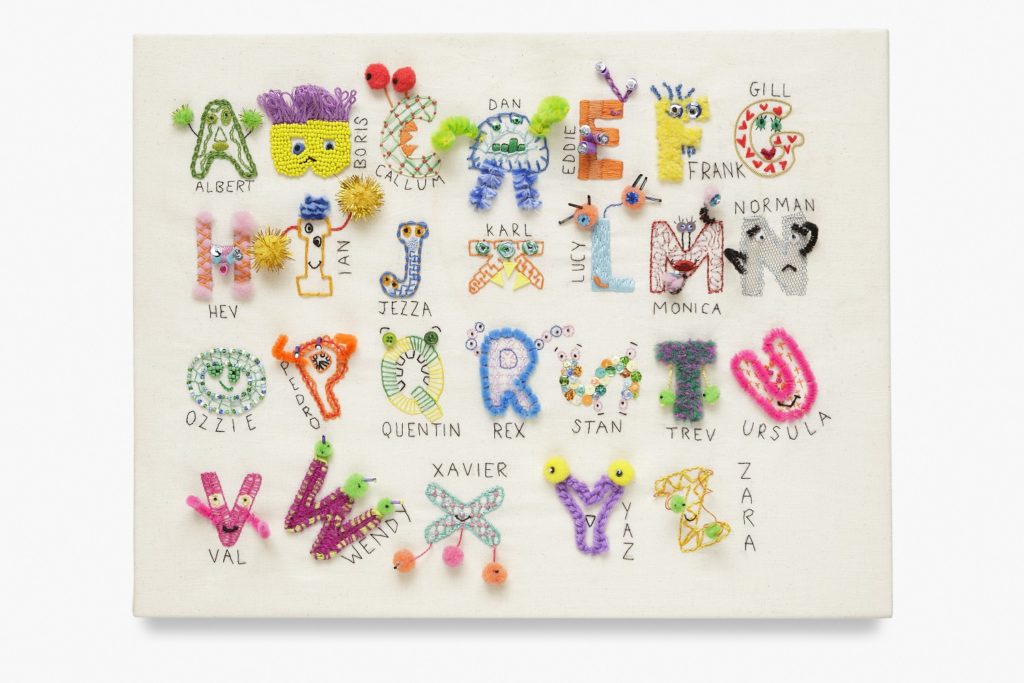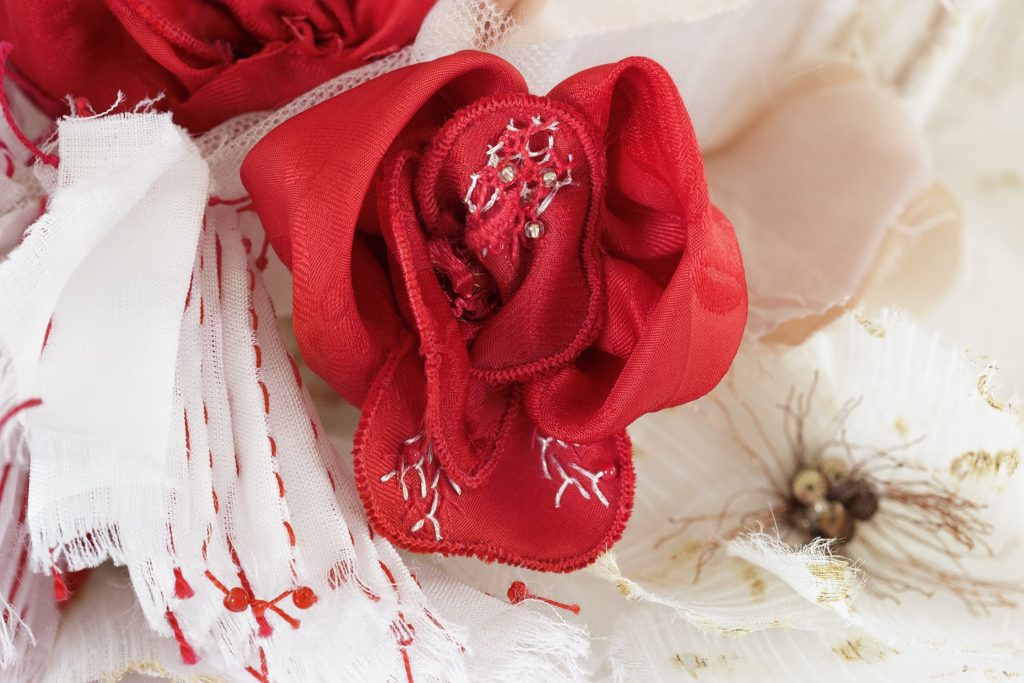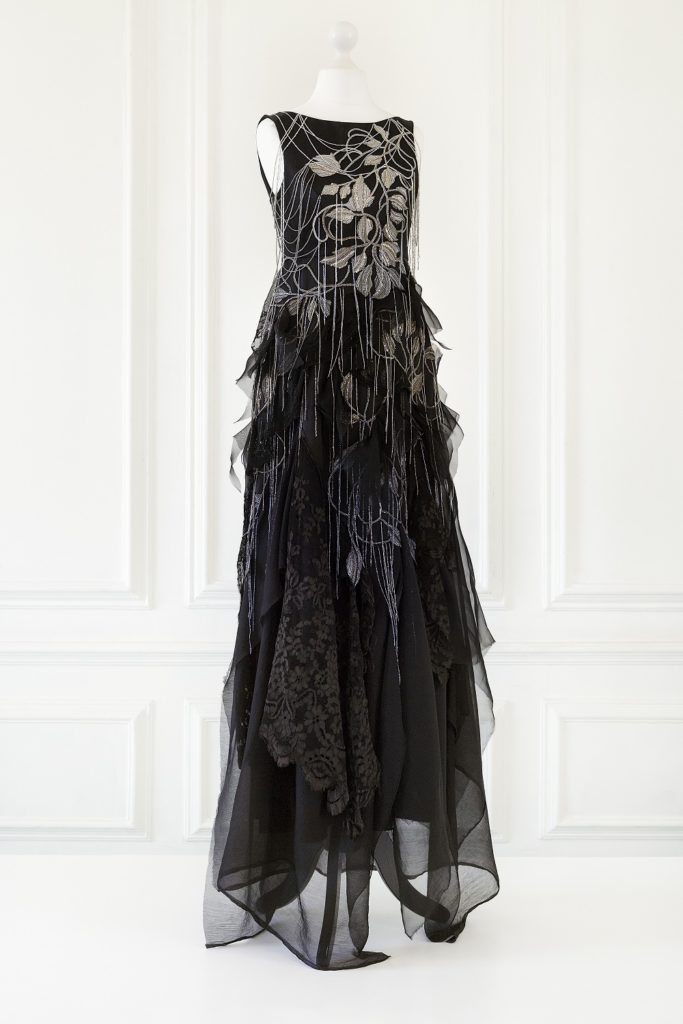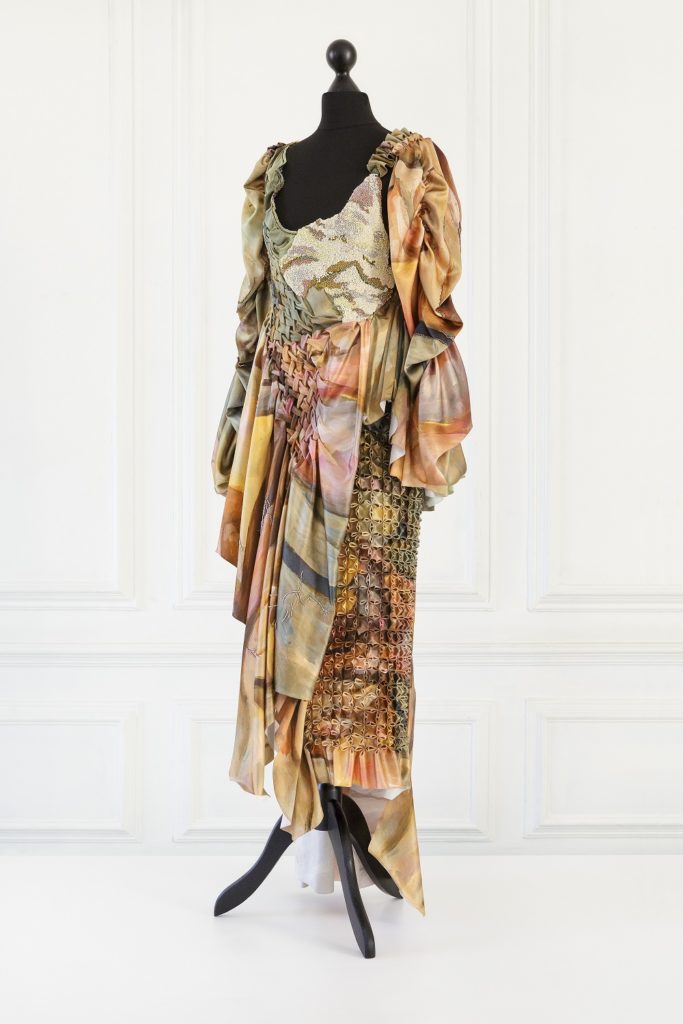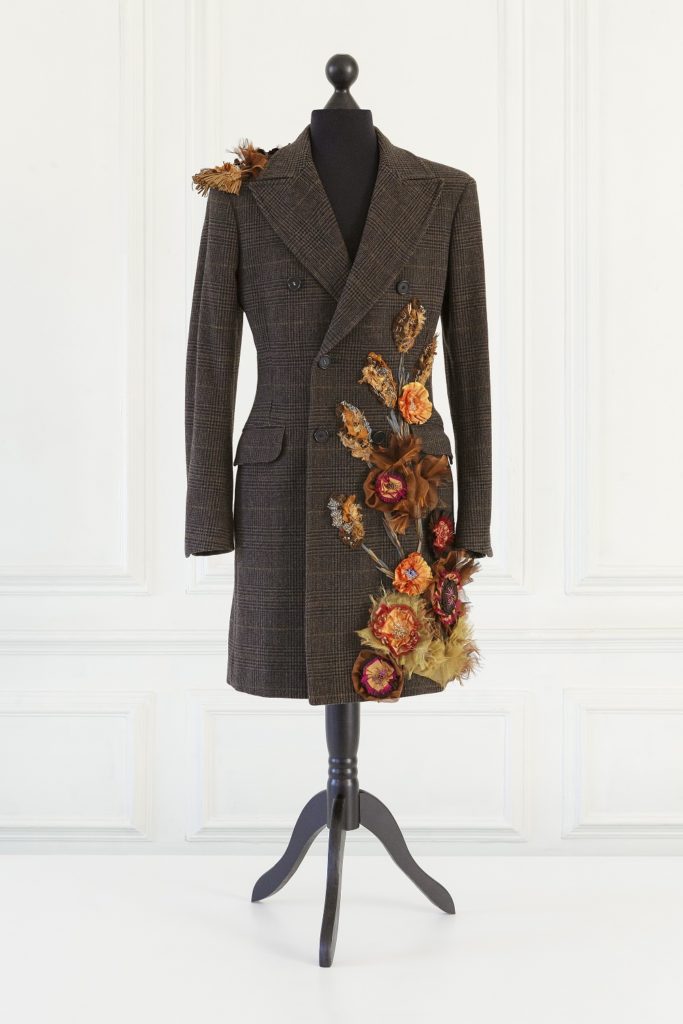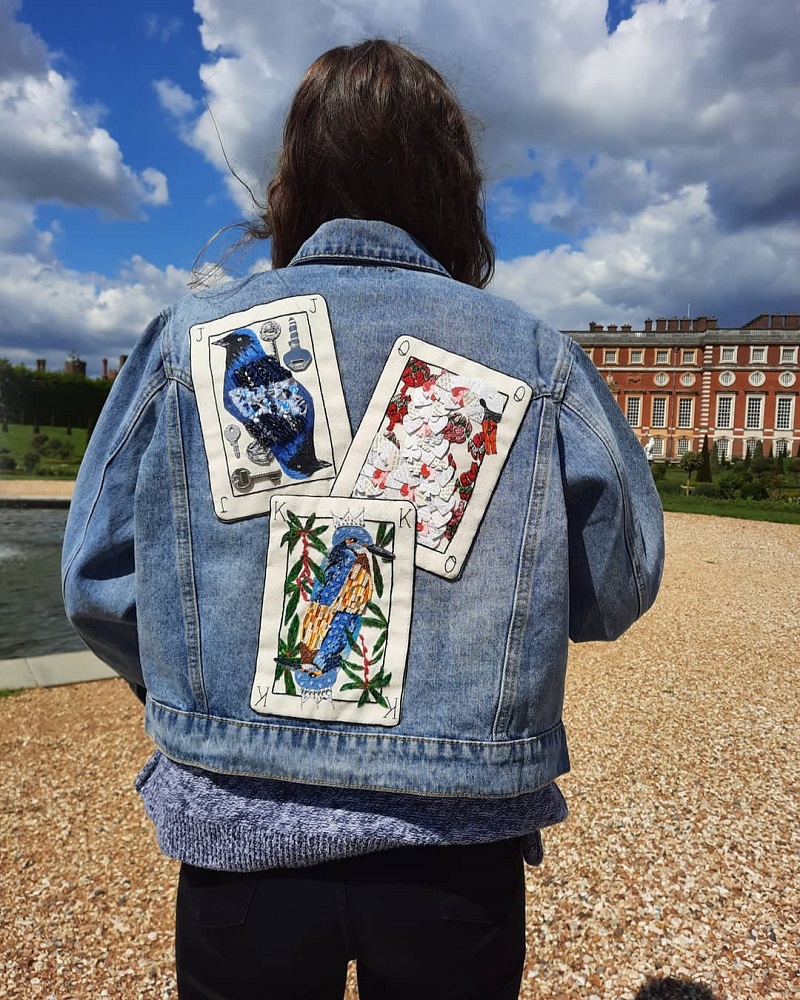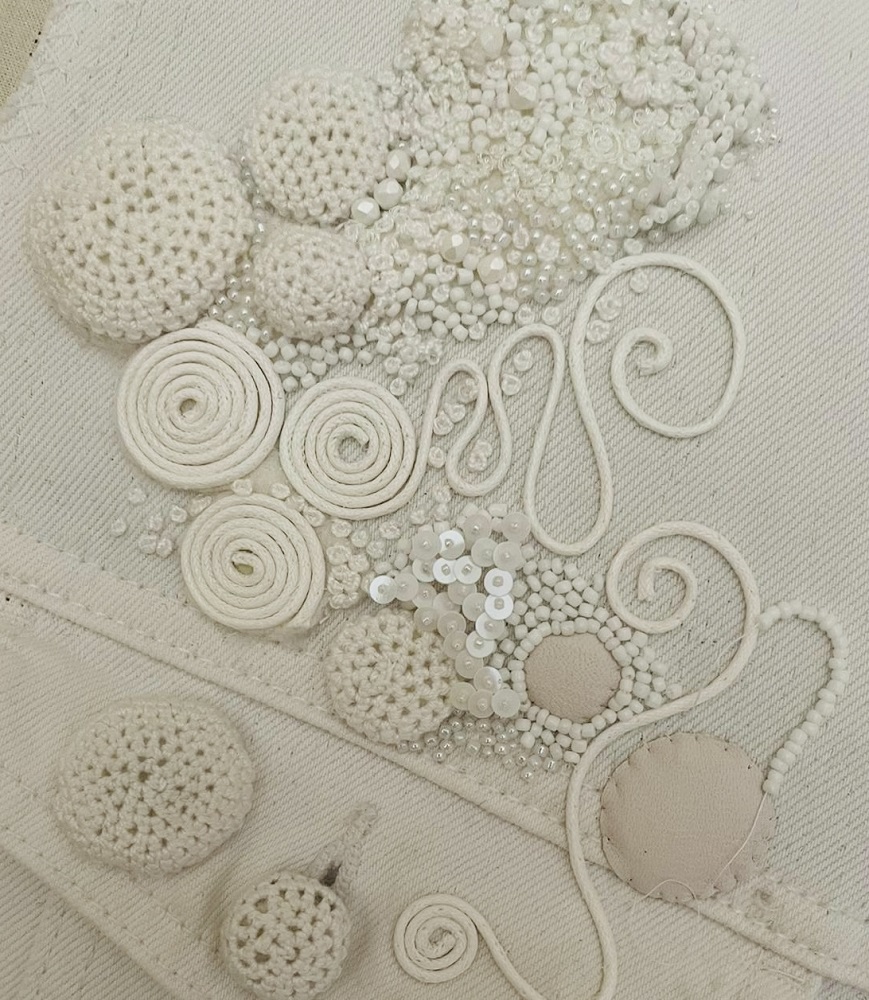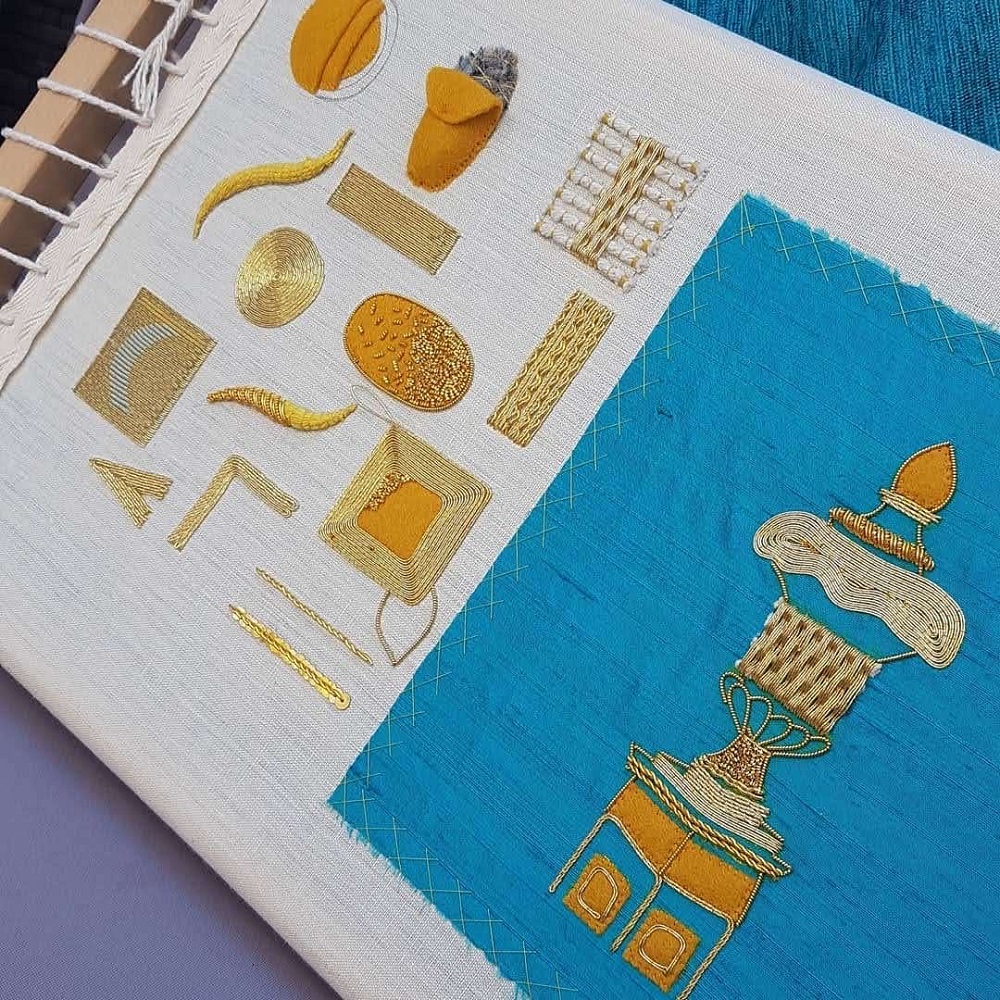Course Overview
A strongly supportive teaching and learning environment
The Royal School of Needlework runs the only full time BA (Hons) Degree programme specialising in hand embroidery in Europe, so to study with us is a very unique opportunity. The RSN Degree has been developed to provide an academic learning experience which connects creative practice, textile and design theory with a technical skills base of hand embroidery.
What you will Study
For entry the UCAS course code for the BA (Hons) Hand Embroidery Course is W237. You can find details on course, including fees and how to apply on the UCAS web site here.
DOWNLOAD OUR LATEST COURSE BROCHURE
With an international reputation, the BA (Hons) course has current students and alumni from around the world. The RSN issues its own Confirmation for Acceptance of Studies (CAS) to international Higher Education students and is fully accountable to the Office for Students through its annual returns and quality monitoring procedures. The course offers a unique educational experience due to the location, setting and small cohort size.
The course is taught by a specialist team of experienced academics, comprising:
- Angie Wyman: Course Leader and Embroidery specialist – Full time
- Sophia Malik: Senior Lecturer in Design – Full time
- Beatrice Mayfield: Senior Lecturer – Contextual Studies (0.6 FTE)
- Livia Papiernik: Lecturer in Experimental Hand Embroidery (0.6FTE)
- Lisa Bilby and Amy Burt: RSN Trained Hand Embroidery Tutors
- Specialist Visiting Lecturers: Justine Bonenfant and Steve Harrington-Simpson – Tambour embroidery, Studio Practice, Digital design and Professional Practice
- Visiting Speakers for Contextual Studies and Studio Practice
- Claire de Waard: Hand Embroidery Technician (0.6FTE)
- Zoe Crush: Fashion Technician (0.6 FTE)
Study on this highly specialist course is in small year groups with an intake averaging 20 students per year, enabling a high level of student / tutor contact time. Attendance is full time, and all students may be required to engage with weekend and evening work throughout their academic year.
Hand embroidery techniques taught in the first and second year at the RSN, are unique; no other provider in the world offers such teaching and learning. Students are expected to engage with experimental approaches to visual research and design, which underpins and informs all hand embroidery practice.
The course aims to provide a learning environment where the knowledge, views and values of all students help to shape the learning environment.
Studio based learning is by project with individual and group tutorials and reviews enabling the individual views and knowledge of each student to be valued equally. Students are encouraged to challenge their creative ideas and individual outcomes through our supportive tutorial feedback process.
We encourage students to become creative problem-solvers and to share their knowledge and expertise through participation in external enhancement projects.
Students are expected to engage with experimentation and enquiry to inform their theoretical and creative practice. The design of the curriculum connects the theoretical and practice-based learning through thematic projects and learning opportunities.
A programme of tutorials, lectures and seminars, facilitates experiential learning through the investigation of objects, materials, making and creative risk-taking.
Our specialist technical team guide students through the materials, processes, and equipment necessary to build their specialist knowledge throughout the course.
Curriculum
The curriculum is inclusive and outward facing, adaptive to external opportunities which build connections with clients through live projects and competitions. The design of the curriculum connects the theoretical and practice-based learning through thematic projects and learning opportunities.
The curriculum introduces the students to:
- Visual research, drawing and mixed media approaches
- Design methodologies and digital design processes
- Specialist hand embroidery skills as taught by the Royal School of Needlework
- Contemporary approaches to hand embroidery, exploring making and reflective writing
- Theoretical frameworks of sustainability, gender, globalisation, and well-being
- Professional / transferable skills and graduate attributes
- Employability and career routes within the creative sector
Learning through making
The course encourages students to explore a kinaesthetic learning methodology across theory and practice. Students engage with and ‘learn through’ materials; to become independent and confident practitioners, writers and creative thinkers – exploring and researching through objects and materials.
Context
As a specialist course, students engage with opportunities to explore a variety of contexts for hand embroidery. Projects briefs, competitions and live projects enable students to experience potential career routes in fashion, interiors, textile art, costume, design and illustration and surface pattern.
The course design offers a holistic approach to learning where students are able to make direct connections between theory and practice. Students learn through objects and develop a direct tacit knowledge of materials and textiles.
Learning the traditional techniques of hand embroidery and then understanding the historical and contemporary context of the stitch through contextual studies and studio practice.
Students are able to develop as researcher/practitioners by developing their own identity and context for their practice. The course offers opportunities for students to compile project proposals which meet the learning outcomes of the module.
Group Work
Working as part of a team is a key transferable skill introduced at key points within the programme – students may work in small seminar groups for both practice and theory sessions.
Small cohort sizes enable group working to evolve in a very holistic way, as part of the everyday studio practice.
Students have been involved in the co-curation and display of works as part of exhibitions and events during their study.
We host an annual student conference as part of contextual studies with guest speakers whereby each student is invited to present their research on a specific theme.
Studio led enhancement projects enable a client to work with students, staff and graduates. This type of working enables the group to co-create commissioned works which build from the skill set of the team. This methodology mirrors the RSN philosophy of ‘never a seat goes cold’ where a piece of hand embroidery looks like the hand of one person; but is in fact the hands of many.
The specialist teaching strategy of the RSN ensures that each student is equipped with the same skill-set to the standard of the Royal School of Needlework.
Contextual Studies
Contextual Studies enrich creative practice, with the opportunity to engage with the material culture of hand embroidery through workshop sessions, lectures and seminars. The programme utilises the RSN Textile handling collection and main RSN Collection and Archive.
Contextual Studies nurtures the student as practitioner-researcher, through building academic skills in research, writing, presentation and curatorial practices.
A programme of external speakers, as well as museum and gallery visits, is scheduled each year and made available to all year groups.
As a specialist course, the BA (Hons) Hand Embroidery programme teaches students in small groups to enhance the quality of their educational experience. An experiential learning and teaching strategy is applied across all modules.
Level Four, Five, and Six
Pre-induction
Students are presented with a summer project prior to enrolment. This forms part of their induction / welcome week activities. This project enables students to showcase their creativity through the production of a designed and embroidered artefact, which is presented to their peer group.
Induction
Students are introduced to the course team, course timetables, module handbooks. course handbook, health & safety procedures, and professional studio culture. There is an introduction to the onsite art and design library / IT Suite at the Royal School of Needlework.
There will also be an induction visit to the Kingston School of Art, Kingston University, campus.
Personal Tutor meetings will be scheduled.
Opportunities while Studying at the RSN
Employability and Personal Development Portfolios
Employability and professional standing is embedded within the modules throughout Level Four, Five and Six. Through the delivery of projects and the opportunity to engage with the practice of visiting tutors and the professional experience of the academic team.
Professional / transferable skills are introduced from level four to level six. Students develop professional studio skills in relation to the practice of hand embroidery. Working with specialist materials and equipment, students learn the vocabulary of the discipline.
An understanding of the professional context of the discipline is delivered through taught projects across all modules. Students develop the knowledge of their specialist subject, build their own network of materials and suppliers and learn time management skills integrated within each project.
Professional skills are gained through the participation in national competitions, examples include: The Worshipful Company of Glovers Annual competition and the Society for Dyers and Colourists student competition. Towards the end of teaching block two, students prepare their CV and artist statement to enable them to apply for internships, employment over the summer period.
During Level five, students become more confident in the context of their own practice. They have moved on from the diagnostic learning experience of Level four and now have a more focussed personal identity to their work. This is further development through a more advanced skill set of hand embroidery and the opportunity to engage with competitions and live projects. Students are taught tambour embroidery which is a key industry level skill to equip them with freelance positions.
Level five students are introduced to professional skills of interpreting an external project brief, time management and creating work to an exhibitable and professional standard.
This learning supports the student in preparation for their RSN Graduate collections at Level six.
During Teaching block two within the module Hand Embroidery Practice, students undertake taught sessions in professional practice. They learn to compile their CV and skills profile as an illustrated digital portfolio to send to prospective employers for summer internships.
Level six modules support students to work holistically to create their professional portfolio and graduate collection; underpinned by a rigorous study into the context of their practice. Professional practice skills are taught to enable the student to create a bespoke portfolio of professional outcomes to launch their career.
Personal Tutor meetings will be scheduled at key points throughout the academic year.
Visiting speakers introduce students to the professional context for hand embroidery and the diverse career routes available. The RSN guest lecture online programme is open to all students. All students tour the Royal School of Needlework professional Studio and gain an understanding of professional studio culture from the RSN team.
Bursaries
The Royal School of Needlework is proud to be able to support students through a number of Bursaries each academic year. Students are eligible to apply for these in teaching block one of each year. All students engage with a bursary writing workshop to support them to compile an application. Successful recipients are required to submit two reports to the Bursary donors at a mid and summative point of the year. This formal illustrated report communicates to the Donor, how the Bursary has supported the student through their studies. Livery Companies will also invite the Bursary recipient to formal events to showcase and promote their work to a wider audience. Bursaries for this academic year total around £30K with an average Bursary of £1000 per person. This is not a one-off payment and a student may apply for a Bursary in every year of the course.
Livery Companies
The RSN has a longstanding connection with the Livery companies of the City. Livery companies support students through Bursaries and competitions. Many RSN students have progressed to become Freemen of the City and represented their Livery at national events.
- Worshipful Company of Broderers
- Worshipful Company of Gold and Silver Wyre Drawers
- Worshipful Company of Girdlers
- Worshipful Company of Needlemakers
- Worshipful Company of Glovers
Galleries and Exhibitions/events
The course has developed strong connections with galleries and events including:
- New Designers, Business Design Centre
- Graduate Fashion Week
- Hand & Lock International Prize for Embroidery
- Fashion and Textile Museum
- Devon Guild of Craftsmen
- Craft Study Centre
- Hampton Court Palace
- Ely Cathedral
Student Support
Students are supported by:
- Academic staff team
- Technical staff team
- RSN Student Support Mentor p/t
- Administrative staff
- RSN Personal Tutors: Level 4,5,6
- Access to LinkedIn Learning
- All technical taught sessions are filmed and uploaded to a secure portal for students to access for future reference
- Onsite RSN specialist art and design library; RSN Stitch Bank
- Onsite RSN IT Suite, Scanners and copiers
- Access to the RSN public online and onsite lecture programme
- Opportunity to participate in all RSN events and activities including exhibitions and events
KSA shared learning experiences as part of the Kingston School of Art, Kingston University.
Employability and work-based learning
Employability and work-based learning is embedded within the programme. Students learn from established practitioners and from their first day onsite, embroidery becomes their future career. Personal Development Planning is integrated into modules from Level four – six.
Career Routes
Potential career routes include:
- Freelance embroiderer for Couture
- Freelance embroiderer for Interiors
- Freelance embroiderer for Costume, Film and Television
- Owner / Director SME
- Designer maker Embroidered jewellery
- Designers for Couture embroidery
- Tutor – Further and Higher Education
- Teacher – Primary and Secondary
Work Placements
Work placements are actively encouraged but are not mandatory. It is the responsibility of individual students to source and secure such placements at times which do not impact on their learning. Through participation in this professional context, students are encouraged to reflect upon their own personal experience of working in an applied setting and to focus on key aspects of this experience to inform both their theory and practice.
RSN students will also have access to the wider support network of the Careers and Employability Service team at Kingston University.
Competitions
Throughout their time at the Royal School of Needlework, students have the opportunity to participate in external competitions. This not only allows the development of skills such as time management, and working to a specific brief, but also the development of professional communication skills.
Competition Level 4
Students have the opportunity to participate in external competitions to build their awareness of the potential application of embroidery to design. they develop transferable skills and learn the challenges of working to an external timescale and design brief. Previous examples have included, The Worshipful Company of Glovers – Glove Competition and working with artists Musson+Retallick to create embroidered illustrations for a hot air balloon installation in Thamesmead. Level Four students have also worked to create bespoke embroideries for London Fashion Week for E.Tautz menswear.
Students work to create digital portfolios throughout the programme to showcase their practice and level of attainment. At level Four, students start to compile their own CV and prepare an introductory letter to potential employers for summer placement opportunities. By working with our technical team, students develop an awareness of materials, suppliers and costings. Supply chains, cost analysis, milestones, working to commission are all explored within the Professional Practice taught sessions, to enhance employability skills working as a freelance embroiderer.
Competition Level 5
Students develop more advanced professional skills through working on high profile design competitions and with external clients. The opportunity for live projects is embedded in the curriculum when possible. Recent examples include Bradford Textile Society and Society of Dyers and Colourists where students have received named awards and commendations. Students have also had the opportunity to make work for external exhibitions including the Fashion & Textile Museum for the Royal School of Needlework 150th Anniversary and the Devon Guild of Craftsmen. This advanced level of practice supports the student to make informed choices as to the potential direction of their practice at Level Six as well as reinforcing transferable skills such as timekeeping and quality of finish.
Competition Level 6
Students are directing their practice towards a defined context as indicated by their proposal and outcomes for the ‘RSN Graduate Collection’ module. The module ‘RSN Graduate Portfolio’ is focussed on their intended career route; through the creation of an expanded portfolio of experimental and technical hand embroidery sampling. This outcome provides the student with a showcase of their creative ability and in a format to present to a future employer. The theoretical module, ‘Professional Practice in Context’, enables the student to present an in-depth body of research exploring the context for their practice alongside the preparation of a bespoke graduate employment plan / PDP Report with artist statement, costing and pricing, business models and the development of professional communication skills to prepare them for interviews and presenting their work to a new audience.
